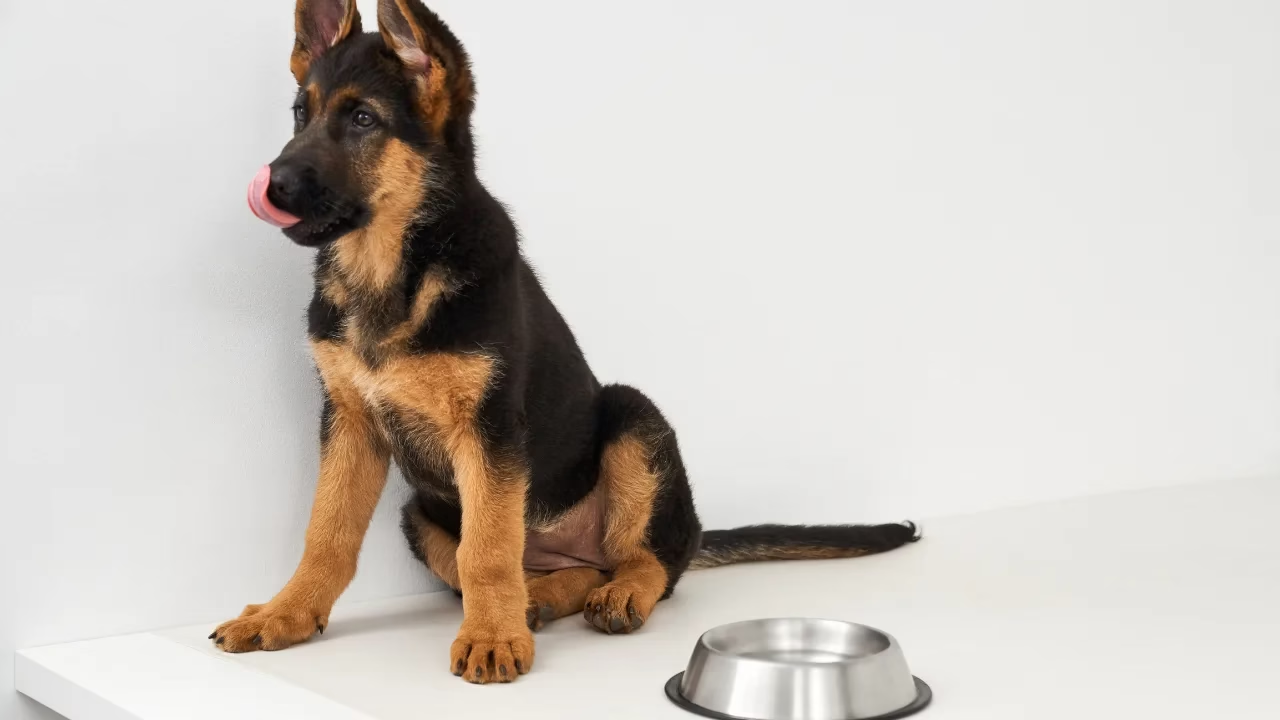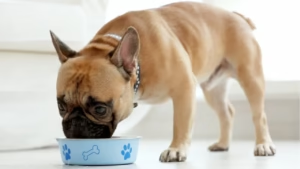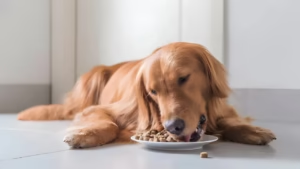German Shepherds are intelligent, loyal, and versatile working dogs, often serving as family protectors, service animals, or active companions. As a pet lover, providing the best nutrition is essential to support their high energy, muscular build, and common health concerns like hip dysplasia and digestive sensitivities. In 2025, the best dog food for German Shepherd focuses on high-protein formulas with joint support and digestible ingredients. This German Shepherd food guide explores nutritional needs, top brands, feeding tips, FAQs, and actionable advice for an optimal German Shepherd diet. Let’s ensure your GSD stays strong, healthy, and full of life!
Nutritional Needs of German Shepherds
German Shepherds are large, active breeds requiring a nutrient-dense diet to fuel their athleticism and prevent issues like bloat, allergies, and joint problems. A quality German Shepherd diet should include high protein (25-30%) from real meat sources like chicken, beef, or fish to build and maintain lean muscle mass. Protein also supports their high metabolism, with amino acids like taurine aiding heart health.
Fats (12-18%) from fish oil or flaxseed provide energy and omega-3 fatty acids for coat shine, skin health, and reducing inflammation—vital for allergy-prone GSDs. Carbohydrates from whole grains like brown rice or grain-free options like sweet potatoes (20-30%) offer fiber for digestion, but keep them moderate to avoid weight gain.
Joint-supporting additives like glucosamine and chondroitin are crucial, as German Shepherds are susceptible to hip and elbow dysplasia. Probiotics enhance gut health, while antioxidants from fruits like blueberries boost immunity. Puppies need 1,200-1,500 calories daily for growth, adults 1,000-1,800 based on activity (adjust for working vs. pet dogs), and seniors lower with extra joint aids. Choose AAFCO-approved foods, and consult a vet for personalized tweaks, especially for sensitive stomachs.
Top Dog Food Brands for German Shepherds in 2025
Selecting the best dog food for German Shepherd in 2025 means prioritizing breed-specific needs like joint care and easy digestion. Based on vet recommendations and owner feedback, here are top picks with pros and cons.
- Royal Canin Breed Health Nutrition German Shepherd Adult Dry Dog Food
Tailored for GSDs over 15 months, with chicken by-product meal, rice, and EPA/DHA for digestion and joints.
Pros: Breed-specific kibble reduces bloat, supports skin with omegas, and includes fiber for gut health. Vet-recommended and affordable.
Cons: Contains by-products; not grain-free for allergy cases. - The Farmer’s Dog Fresh Food Delivery
Custom fresh meals with USDA beef or turkey, veggies, and vitamins, pre-portioned for your GSD.
Pros: Human-grade, no fillers, personalized for weight and allergies; high moisture aids hydration.
Cons: Subscription-based ($4-10/day); requires freezer space. - Purina Pro Plan Large Breed Shredded Blend
High-protein (26%) with chicken, probiotics, and glucosamine for joints and immunity.
Pros: Affordable, appealing texture for picky eaters, supports hip health; widely available.
Cons: Grain-inclusive; may cause gas in sensitive dogs. - Orijen Original Dry Dog Food
Biologically appropriate with free-run chicken, turkey, and fish; 85% animal ingredients.
Pros: Grain-free, high protein (38%) for muscle; freeze-dried coated for flavor. Great for active GSDs.
Cons: Expensive; rich formula may upset stomachs if not transitioned slowly. - Hill’s Science Diet Adult Large Breed
Chicken meal-based with natural fibers, glucosamine, and antioxidants for digestion and joints.
Pros: Vet-formulated, calorie-controlled to prevent obesity; promotes healthy coat.
Cons: Not grain-free; some dogs find it bland. - Taste of the Wild Pacific Stream
Grain-free salmon formula with sweet potatoes, probiotics, and omegas for skin and digestion.
Pros: Affordable premium option, allergy-friendly (no poultry), supports joint health.
Cons: Fish smell; higher fat may not suit less active dogs.
These brands stand out for their focus on German Shepherd diet essentials, offering a mix of dry, fresh, and premium choices.
Feeding Guide for German Shepherds (Age-Wise)
A structured feeding routine is key in any German Shepherd food guide to avoid overeating and bloat. Portions vary by size (adults 65-90 lbs), activity, and neuter status—consult your vet. Use slow-feed bowls.
- Puppies (8-12 Weeks): Feed 3-4 small meals daily, 1-2 cups total of puppy formula (1,200-1,500 calories). High-protein with DHA for brain growth.
- Puppies (3-6 Months): 3 meals, 2-3 cups daily. Include joint supplements for developing bones.
- Adolescents (6-12 Months): 2-3 meals, 3-4 cups total. Monitor rapid growth to prevent skeletal issues.
- Adults (1-7 Years): Two meals, 3-5 cups dry or equivalent fresh (1,000-1,800 calories). Working GSDs need more; pets less to stay lean.
- Seniors (8+ Years): Two meals, 2-4 cups with reduced calories. Add glucosamine; softer textures for aging teeth.
Avoid free-feeding; provide fresh water always. Transition new foods over 7-10 days, and weigh monthly to adjust portions.
FAQs About German Shepherd Diet
Pet lovers often have questions about the best dog food for German Shepherd. Here are helpful answers.
- How much should I feed my adult German Shepherd?
Typically 3-5 cups daily, split into two meals, based on weight and activity. Aim for 1,000-1,800 calories to maintain ideal body condition. - What if my GSD has allergies?
Choose limited-ingredient or grain-free foods like salmon-based; avoid common triggers like chicken. Vet testing can identify specifics. - Is raw food suitable for German Shepherds?
Yes, like Blue Ridge Beef, for natural proteins and joints. But ensure balanced and vet-approved to avoid risks. - Can German Shepherds eat human food?
Moderately—lean meats or veggies as 10% treats. Avoid toxic items like chocolate, onions, or grapes. - How do I prevent bloat in my GSD?
Feed smaller, frequent meals; use slow-feeders; avoid exercise right after eating. Elevated bowls may help some dogs.
Conclusion: Actionable Tips for a Healthy German Shepherd Diet
Choosing the best dog food for German Shepherd in 2025 means focusing on protein-packed, joint-supporting options to match their active lifestyle. Brands like Royal Canin or The Farmer’s Dog provide tailored nutrition for long-term wellness. With this German Shepherd food guide, you’re equipped to keep your loyal friend thriving.
Actionable tips: Measure portions precisely; incorporate daily exercise like agility training; add fish oil for coat health; schedule annual vet visits for diet adjustments; and rotate proteins to maintain interest. Start with a sample from a top brand today—your GSD will reward you with boundless energy and devotion!








